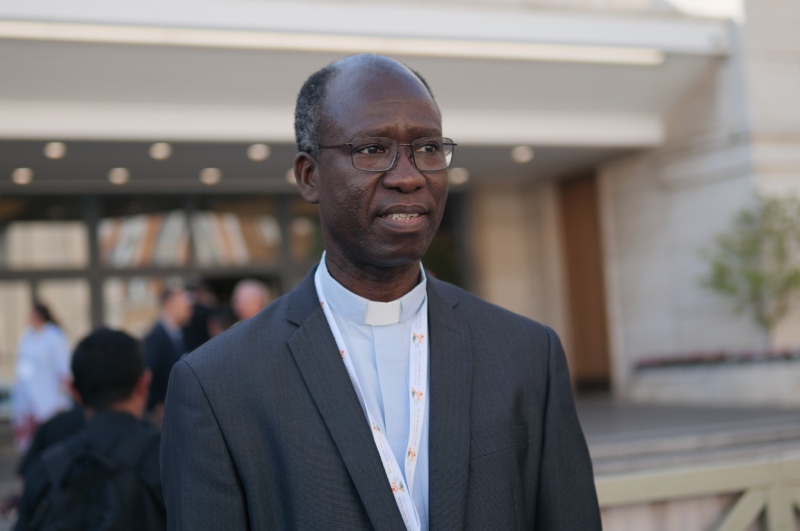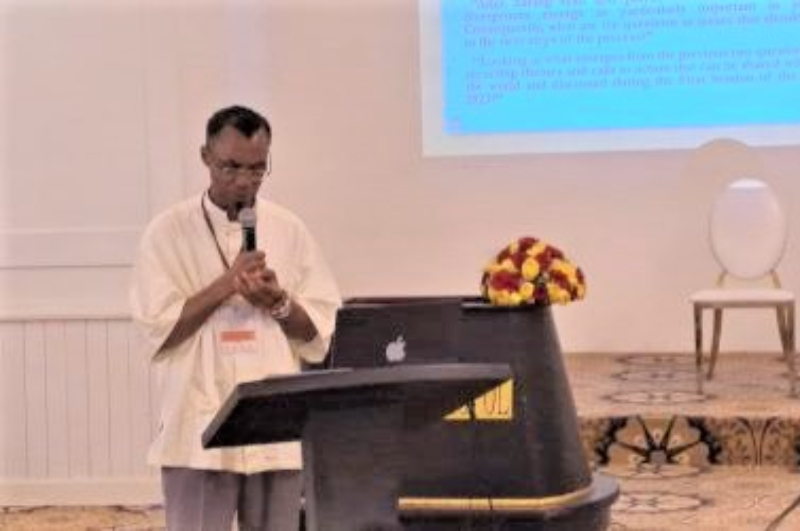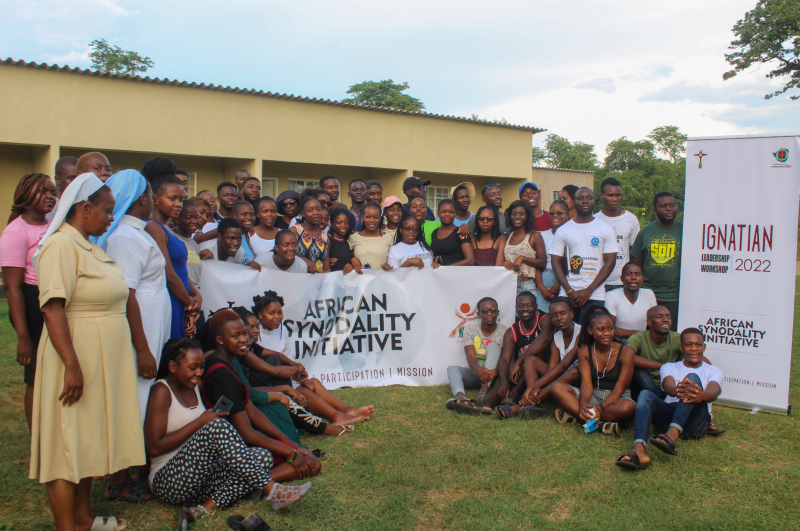

From August 7 to 9, 2025, more than 500 African religious sisters, missionary sisters in Africa, and a few religious priests took part in an international symposium on the theme “Frailties and outreach of Women Religious Life in Africa.”
The event was organized by the Center for Counseling and Clinical Pastoral Care (COPAC), in collaboration with MISSIO AACHEN, represented by Dr. Marco MOERSCHBACHER. COPAC is a Jesuit academic center established within the Institute of Theology of the Society of Jesus, in partnership with the Jesuit University of Abidjan (UJA).
In presenting the rationale, Father Jean MESSINGUE, SJ, President of the Scientific Committee and Director of COPAC, emphasized that this symposium was part of a synodal approach applied to women’s consecrated life on the African continent. Under his leadership, five (5) research teams made up of religious women from (05) five African countries, including Senegal, Burkina Faso, Cameroon, the Democratic Republic of Congo, and Ivory Cost, were formed to amplify their voices. During the proceedings, 20 presentations (98%) were made by the religious sisters themselves based on surveys and interviews with other religious sisters in their respective countries on the factors that weaken consecrated life for women in Africa and the best practices to put forward in order to strengthen its outreach.
As Father Jean MESSINGUE, SJ, stated, “Religious life for women in Africa remains a real source of hope for the Poor and marginalized people”. However, there is a striking paradox: while the Catholic population is growing rapidly on the continent, the number of religious women is declining. This reality occurs in a context marked by the persistent socio-political crises, rising youth unemployment, and increased demand to serve vulnerable people. To achieve this, African consecrated women should first of all face their own vulnerabilities, both personally and institutionally.
This symposium laid the groundwork for an ecclesial discussion on the recommended measures to ensure the vitality and outreach of women’s religious life in Africa, despite its current state of vulnerability. Presentations and discussions, punctuated by spiritual conversations coordinated by Sister Béatrice Faye and Father Paul Béré, highlighted several ideas:
1. Despite numerous challenges, African sisters continue to carry out a ministry of presence and compassion toward children and vulnerable persons in Africa;
2. The urgent need to address the fulfillment and well-being of religious sisters was repeatedly emphasized; the outreach of consecrated life depends on it;
3. The mission of African religious sisters to the Northern countries represents a prophetic synodal way. However, it involves many challenges that must be carefully addressed to ensure both its success and the well-being of the sisters sent on mission in these countries.
4. To be an authentically African religious sister, while remaining deeply rooted in the charism of their congregation, is the essential path toward both personal and community fulfillment. A reflection that is at once fundamental and practical deserves to be further developed on this matter, particularly starting from the lived experience of the sisters themselves.
5. Young sisters deplored the quality of leadership being practiced in many religious life institutes weakened by power and sexual abuses ; while final professed sisters acknowledged some progress made in the exercise of leadership and the desire to strengthen it;
6. Some international congregations in Africa are undergoing federation initiatives. The research made by sisters has revealed that African religious sisters feel insufficiently involved in decision making processes, and that the transfer of congregational patrimony to Africa encounters many obstacles. Better consultation and listening to African sisters in trust was strongly recommended;
7. Serious shortcomings have been identified in the handling of abuses whether sexual, related to authority, psychological, emotional, or of conscience toward religious sisters. The weight of patriarchal cultures and clericalism remains a major obstacle.The creation of an independent inter-congregational unit to address the sexual, psychological, emotional, conscience, and power abuses many religious sisters face on a daily basis;
8. A review and adjustment of the training programme for religious sisters emerges as a priority,in light of contemporary challenges and the process of Africanization. Many ideas were proposed, with the quality of formation being seen as a lever for financial autonomy, personal fulfillment, and protection against abuse.
9. Strengthening the inculturation of consecrated life, particularly in its dealings with family, by sharing the good practices implemented in some congregations.
Sisters hailed this symposium as an enlightening, challenging, awareness-raising, and trans-formative experience. It strengthened hopes and enabled them to imagine together a stronger and more vibrant future for women religious life in Africa. There is an urgent need to continue this initiative, seen as the first opportunity to provide religious sisters a means to share their experience of the vulnerability plaguing their vocation so as to foster a greater outreach.
In his closing remarks, Father Jean MESSINGUE promised to continue working with the research teams, especially as they committed to publish the proceedings as soon as possible.
Related Articles
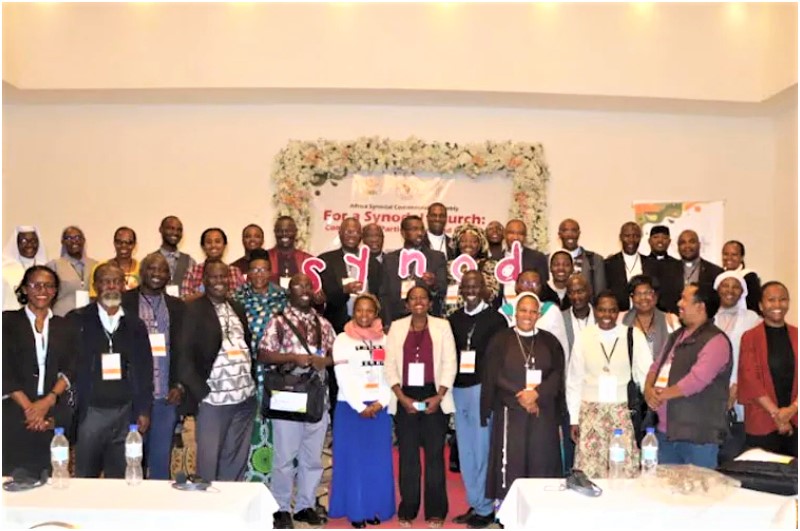
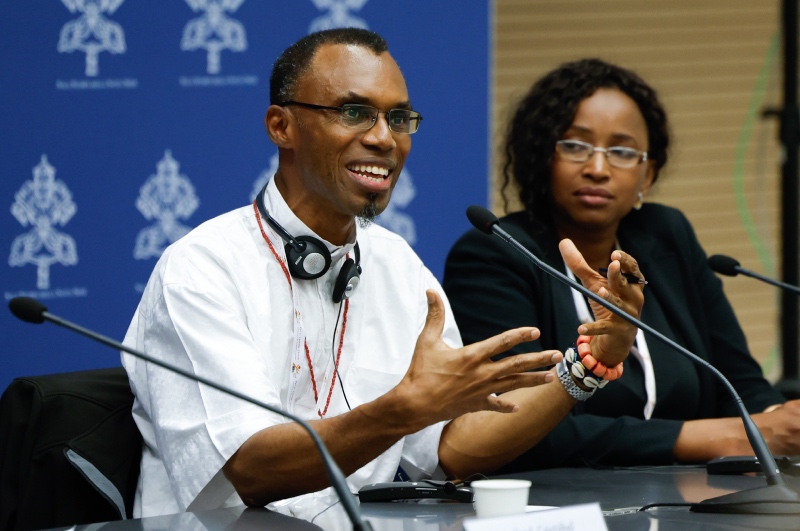
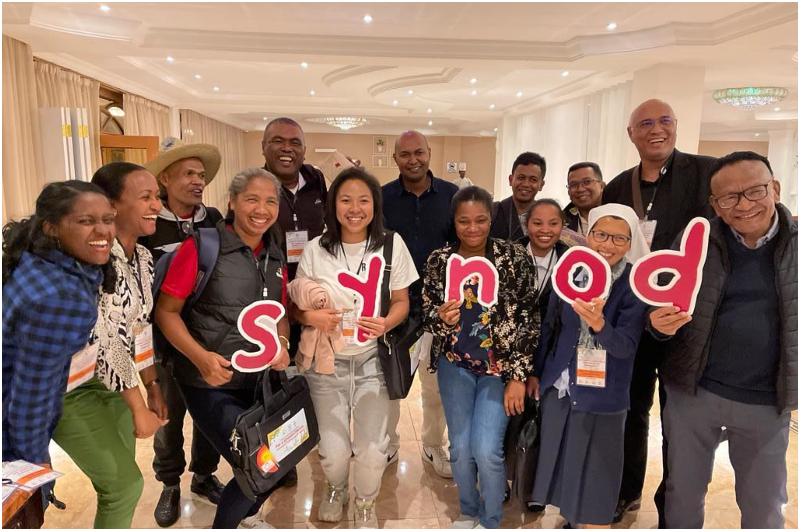
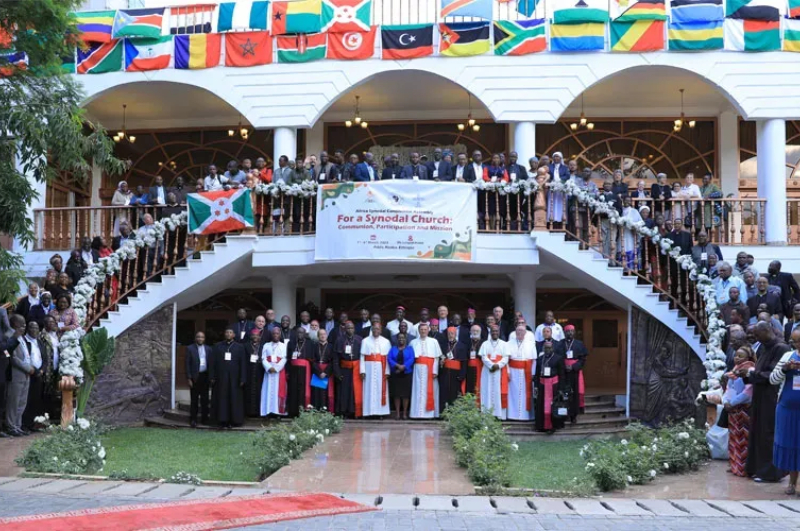
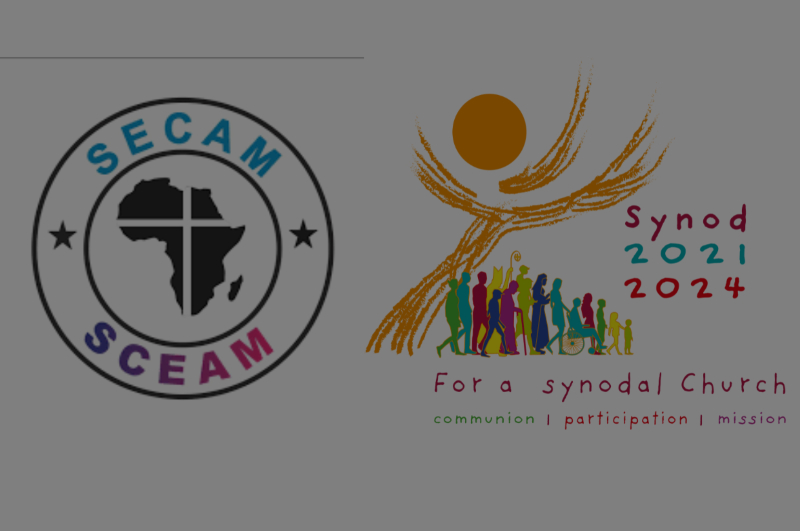
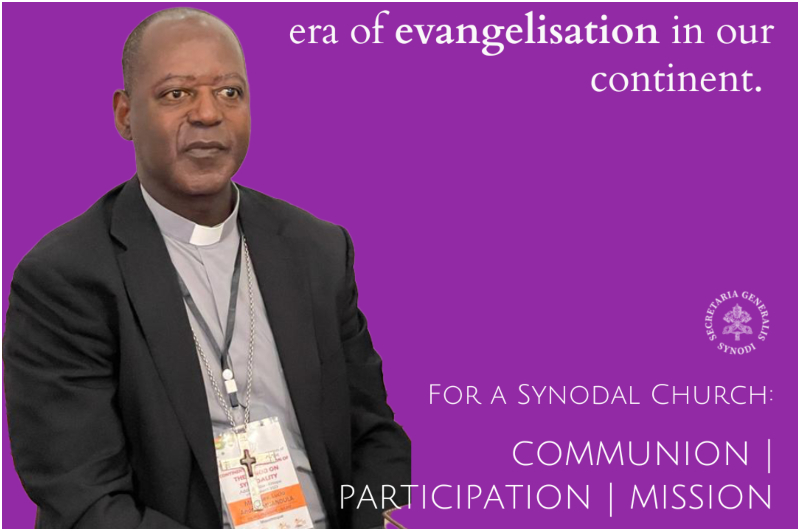
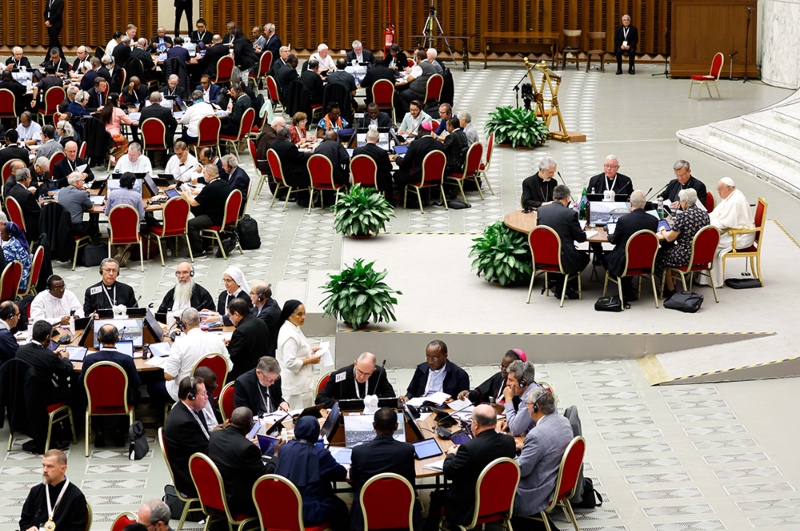
Select Payment Method
Pay by bank transfer
If you wish to make a donation by direct bank transfer please contact Fr Paul Hamill SJ treasurer@jesuits.africa. Fr Paul will get in touch with you about the best method of transfer for you and share account details with you. Donations can be one-off gifts or of any frequency; for example, you might wish to become a regular monthly donor of small amounts; that sort of reliable income can allow for very welcome forward planning in the development of the Society’s works in Africa and Madagascar.
Often it is easier to send a donation to an office within your own country and Fr Paul can advise on how that might be done. In some countries this kind of giving can also be recognised for tax relief and the necessary receipts will be issued.



